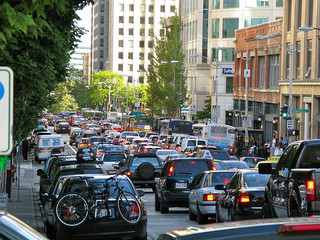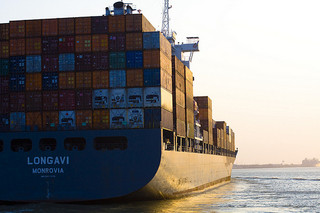Economic Recovery Slows Fleet Vehicle Operations

INRIX provides traffic information which can be used for all sorts of intelligence gathering and decision making. Its Gridlock Index (IGI) tells some good news and some bad news. According to its data, traffic in the most populated 100 cities across the United States is picking up, leading to more gridlock and slower travel times. The good news is, this is a sure sign of economic recovery. The bad news is, ground transportation is slowing down.
When consumers have high levels of confidence, they flood the roadways going to work and out shopping to spend their money. During the recession, fewer commuters and less consumer shopping made travel easier, especially for fleet vehicles which earn their living making on-time deliveries. According to an index released by Thompson/Reuters and the University of Michigan, consumer levels are up. This is backed by news from the INRIX that traffic is slowing down.
The IGI data said commuters had a significantly slower ride in January 2013 when compared to January 2012. This is confirmed by the joint report by Thompson/Reuters and UM, who report 49% of Americans said traffic congestion was getting worse and 54% believe the congestion will get even worse in the years to come.
So, the good news is the economy is picking up and those of us with something to sell have a better chance of selling it. The bad news is, deliveries are slowing down and fleet operators might have to adjust customer expectations when it comes to a time-table for receiving merchandise.
Another benefit to traffic congestion and slower vehicles on the roadways is fewer accidents and fatalities. As frustrating as slow fleet travel can be for businesses, the flip side is fewer of their vehicles are damaged in accidents, fewer workers are injured or killed on the roads, and insurance rates are more favorable when fleet vehicles and workers incur less damage.





